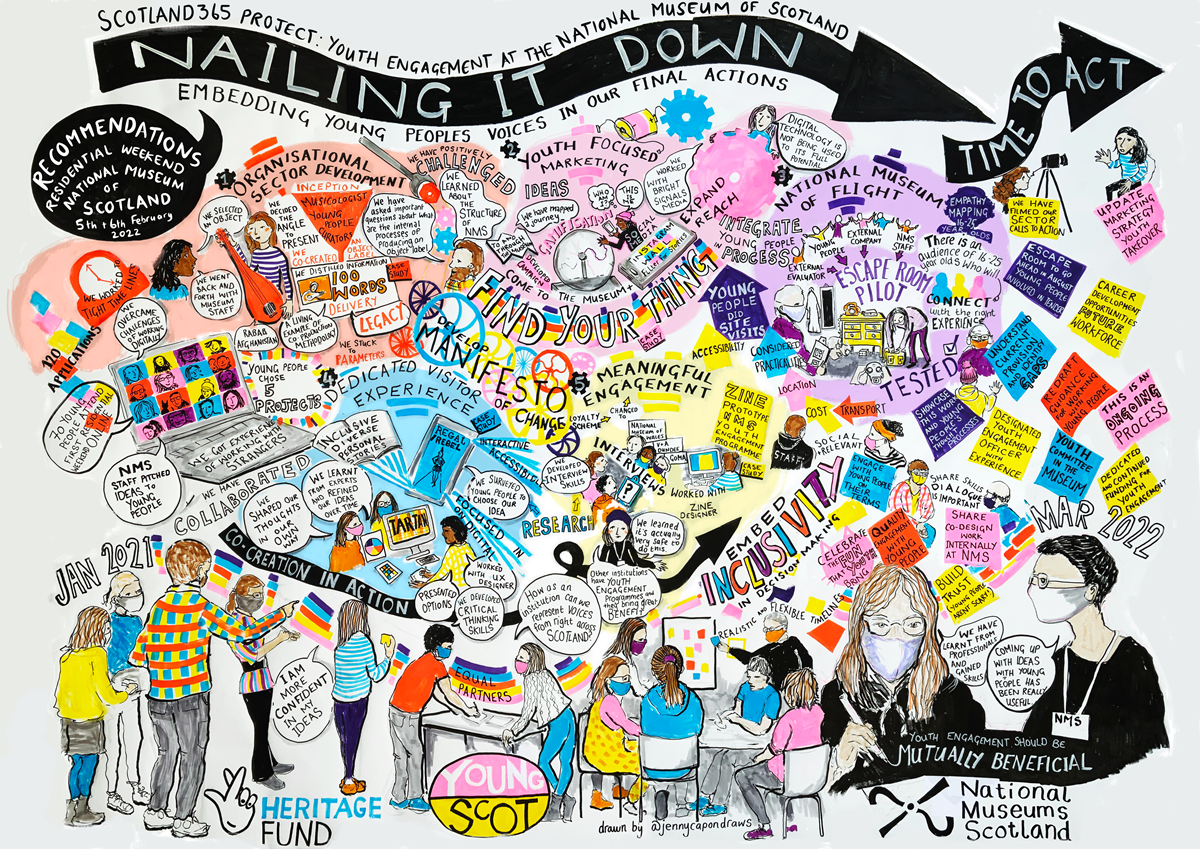Key in a search term below to search our website.
Key in a search term below to search our website.
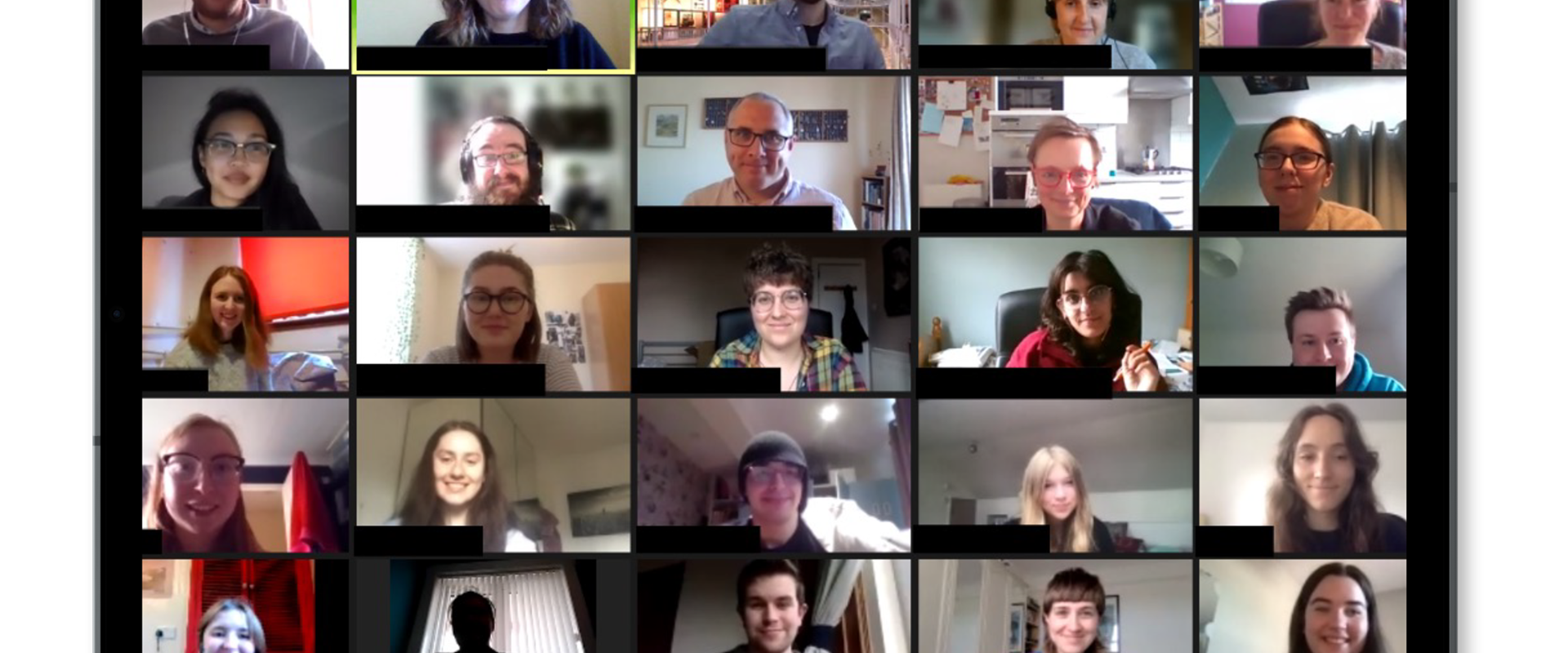
The Scotland 365 Youth Engagement Team (YET) were led through Young Scot’s YSHive co-design process designed to build their knowledge and understanding of the sector, before developing creative solutions and testing out the real-life potential of these with wider groups of young people and stakeholders.
The process helped support our youth engagement team to:
Explore – Frame the vision, probe problems and question the big picture
Create – Seek opportunities to prototype and play with ideas to take a deeper dive into the issues
Disrupt –Test ideas in the real world and question the future to learn if they have value
Act – Share learning stories and pitch bold ideas to challenge decision-makers and influence real system change
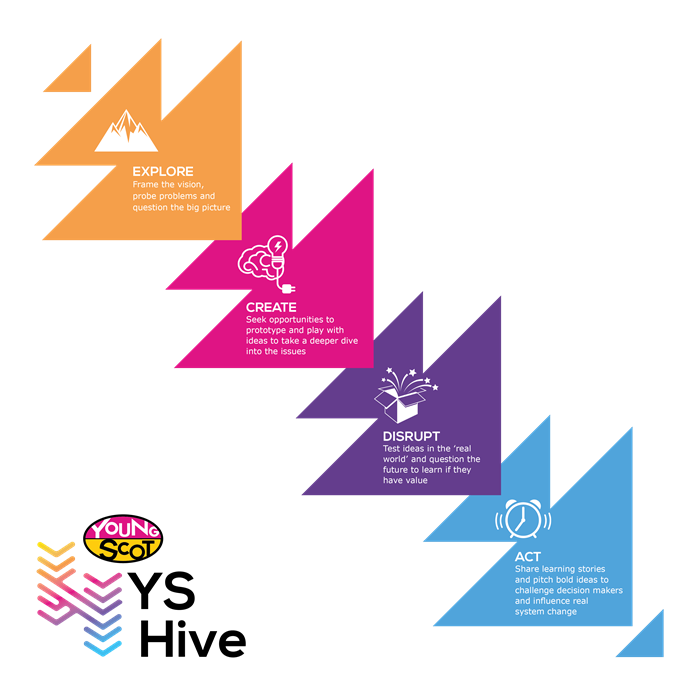
Young Scot Hive co-design process
During the first Explore stage, the group developed their understanding of the museum and heritage sector and young people’s experiences and engagement.
The groups were supported to further define their objectives based on “how might we” questions developed during an earlier research stage. These questions set out to probe how a change could take place and encouraged thinking around identifying the problem and framing their vision. Groups also began to tweak the “how might we” questions to best represent the aims of the project team in their current context.
Further research and mapping activities helped the groups to better understand the current landscape and probed the challenge of engaging young people across the museum and heritage sector.
Activities included empathy mapping to further understand the nuances of the target audience, exploring behaviour change theories to dig deeper into the possible barriers and challenges to engagement and developing project plans to understand opportunities and timelines.
“Further research and mapping activities helped the groups to better understand the current landscape and probed the challenge of engaging young people across the museum and heritage sector.
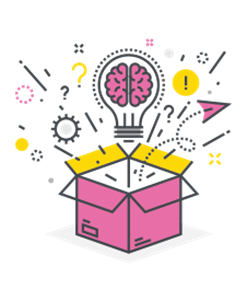 Based on the knowledge gained during the first phase, the Create phase encouraged creative thinking and solution-focused activity and discussions.
Based on the knowledge gained during the first phase, the Create phase encouraged creative thinking and solution-focused activity and discussions.
Project groups were encouraged to take part in brainstorming and idea generation activities to kick-start the creative process. A ‘blue-sky’ thinking approach was adopted during the early parts of this stage, to ensure ideas weren’t limited or bound by strict guidelines.
An interactive and collaborative ‘Jam’ residential weekend was delivered in September with a focus on prototype development, honing-in on the previous idea generation which took place throughout July and August. Across the weekend, the Youth Engagement Team (YET) worked together with NMS staff to develop tangible outputs relating to their project areas. They were supported to use tools such as storyboarding to visualise the different parts of their prototype/experience and start to think deeper about the logistics and functionality of concepts.
After the residential, project groups worked with different partner organisations to further support and refine their prototype ideas.
To understand the real-life potential of prototypes, this phase is designed to test and critically evaluate ideas further. By testing ideas with other groups, this helps to better understand the surrounding context and the ability to provide practical solutions.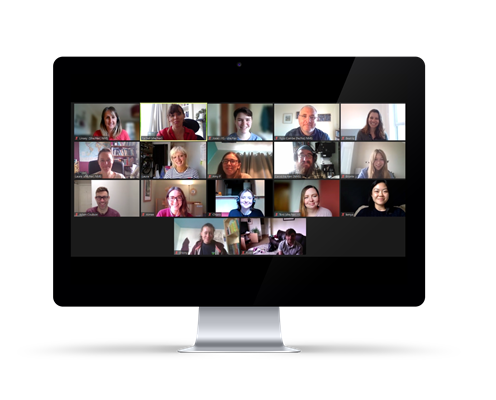
This stage allowed the YET to better understand the needs of young people and the sector, and to make refinements to the prototypes based on these needs. Activity here included evaluation surveys shared with attendees of a pilot escape room event held at National Museum of Flight, testing prototype ideas to wider groups of young people during a co-design session and creating surveys shared online to collect feedback on visitor experience concepts.
Reflection and learning are key components of this stage of delivery. The YET and staff started to consolidate their learnings into clear and defined recommendations and calls to action for the wider museum and heritage sector. This stage ensures that the work and activity delivered over the previous several months can be shared wider and encapsulates the young people’s vision.
A final residential weekend was delivered in February, with the aims to reflect on the process and learning and distil their learnings into a recommendation report to share with the sector.
